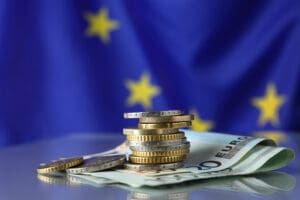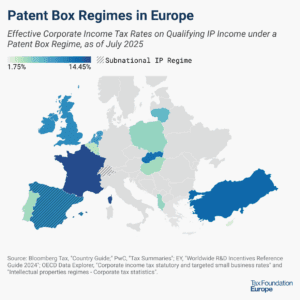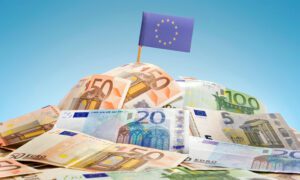
All Blog Posts

Spain’s Poorly Designed Tax Policy Hurts Its Competitiveness
Spain’s central government could learn some valuable lessons from its regional governments and other European countries about sound tax policy.
7 min read
Are Windfall Taxes Becoming the New Normal in the UK?
Even though energy prices have declined from their recent peak, the United Kingdom is one of the few countries in Europe continuing to rely on windfall profits taxes to support households with the rising cost of living.
4 min read
Wartime Taxes Are Waging War on Sound Policy Choices
Spain’s central government is considering making its windfall taxes on energy companies and the banking sector permanent.
6 min read
What Does Moving Toward a More Competitive EU Tax System Mean?
As the geopolitical scene continues to change, policymakers in Europe should focus on lowering effective marginal tax rates to drive much-needed investment and long-term economic growth.
6 min read
The French Budget: Moving from Public Debate to Principled Solutions
Focusing on competitiveness, neutrality, and efficient policies to raise revenue would go a long way in increasing economic growth and stabilizing public finances over the long term.
7 min read
Tax Files under New Council of EU Presidency: Hungary
As Hungary takes over the six-month rotating presidency of the Council of the European Union in the aftermath of the European elections, the relationship between tax policy and Europe’s competitiveness will be closely linked.
6 min read
Understanding Full Expensing in the United Kingdom
Given the positive contribution of full expensing to economic growth and that the UK already incurred the peak-year costs due to the existing policy, it is imperative to maintain it permanently.
5 min read
The European Union’s ViDA Proposal: Ignoring Principles Does Not Make Tax Policy Fairer
Adopting tax policy based on sound principles like neutrality rather than political expediency is essential for the European Union’s fiscal future.
5 min read
New Report Identifies Challenges with Global Minimum Tax Implementation in the EU
European Union Member States are in the process of implementing the global minimum tax in line with a directive unanimously agreed to at the end of 2022.
3 min read
The European Election and Tax Policy: Mapping Tax Policy Visions across European Political Groups
On Europe Day, our experts explore how the decisions made in the upcoming elections will shape the trajectory of the continent for years to come.
4 min read
Portugal’s Personal Income Tax System: High Top Rate, Threshold, and Tax Credits
Portugal’s personal income tax system levies high tax rates on an unusually narrow set of high earners, striking a poor balance between earnings incentives and revenue contributions.
4 min read
Property and Transfer Tax: If It Moves, Stop Taxing It.
Portugal’s turnover tax on real property transfers places a serious drag on economic growth by making it harder for people to relocate for better jobs and living conditions while constraining investment into the development of housing and buildings.
5 min read
Portugal’s Corporate Taxes Stifle Investment and Economic Growth
Portugal has the second highest top corporate tax rate in the OECD at 31.5 percent, including multiple top-up taxes. Unlike most OECD countries, Portugal imposes a highly progressive tax structure on corporate income.
6 min read
Tax Foundation Europe Launches Website and Prepares Brussels Office
The landscape of tax policy is changing—and we at the Tax Foundation are changing with it.
3 min read
Mind the Gap, Please! How Portugal Could Reform Its VAT System
Portugal’s value-added tax (VAT) policy is a treasure trove of tax oddities. Thankfully, VAT base broadening is an ideal instrument to give the Portuguese government the fiscal room to implement pro-growth tax reforms
5 min read
Tax Files under New Council of EU Presidency: Belgium
In such a determinant semester for Europe, principled tax policy can be an important tool for a more competitive European Union.
5 min read
Spanish Regions Are Not Surrendering Their Tax Competitiveness without a Fight
Spain’s central government could learn some valuable lessons from its regional governments about sound tax policy.
7 min read
European Tax Policy Scorecard: How Competitive is Ukraine’s Tax System Relative to EU Member States?
In the end, the best way for the EU to support Ukraine’s post-war recovery is to guarantee its tax sovereignty, not just its territorial sovereignty.
5 min read
Tax Reform Is Key to Ukraine’s Economic Health, Now and after the War
What historical lessons of wartime finance can Ukrainian and EU policymakers learn to put Ukraine’s economy on a path to success during, and especially after, the war?
5 min read
What’s Next for Tax Competition?
The rules of tax competition are changing with the recent agreement on a global minimum tax and other changes to tax rules around the world, but that does not mean the contest is over.
5 min read




